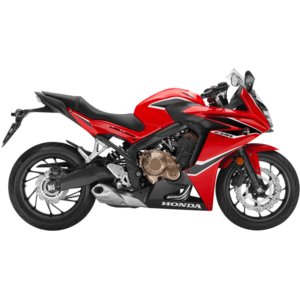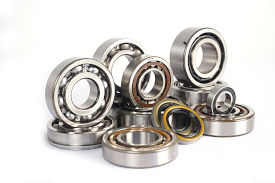Honda CBR650F [2017-2018]: The Balanced Sportbike That Rewrites the Rulebook
Introduction: The Sweet Spot Between Aggression and Civility
The Honda CBR650F isn’t just a motorcycle—it’s a masterclass in balance. Designed to bridge the gap between full-liter superbike intensity and the practicality of a daily rider, this 2017-2018 model generation redefines what a middleweight sportbike can be. After spending a week with a meticulously maintained 2018 CBR650F ABS, it’s clear why this bike developed a cult following. Whether carving through mountain passes or navigating urban sprawl, the CBR650F delivers a surprisingly nuanced experience that prioritizes rider connection over raw numbers.
Design & Ergonomics: Sporty Intent Meets Real-World Logic
Aesthetics That Mean Business
Honda’s designers nailed the “sportbike presence” without resorting to cartoonish aggression. The sharp, angular fairing—available in Candy Red/Black or Matte Black Metallic—wraps around a compact LED headlight cluster (60/55W halogen bulbs on non-ABS models). The four-into-one exhaust tucks neatly under the tail section, creating a clean profile that ages better than many competitors.
Human-Machine Interface
At 810 mm (31.9"), the seat height is accessible yet sporty. The handlebars are 25 mm lower than the CB650F naked version, putting you in a committed but not punishing posture. During a 320 km (200 mi) day ride, the slightly rearset footpegs caused minimal knee strain—a rarity in this class. The 17.3L (4.57 gal) tank narrows elegantly at the knees, making it easy to grip during hard cornering.
Performance: The Inline-Four’s Siren Song
Engine Character: Civility With a Split Personality
The 649cc liquid-cooled DOHC inline-four is the star here. Below 6,000 RPM, it’s all velvet smoothness—perfect for commuting or relaxed highway cruising. But twist the throttle past the 8,000 RPM torque peak (63 Nm / 46.5 lb-ft), and the character transforms. The engine builds to a glorious 11,000 RPM crescendo, delivering its full 85.8 HP (62.6 kW) with a howl that’s muffled but still thrilling through the stock exhaust.
Fueling via the 32mm PGM-FI throttle bodies is flawless. There’s none of the low-RPM snatchiness that plagues some competitors. The cable-actuated clutch (a rarity in modern bikes) offers satisfying mechanical feedback, though heavy traffic reveals a slightly stiff pull.
Transmission & Gearing
The 6-speed gearbox clicks through ratios with Honda’s trademark precision. Sixth gear at 120 km/h (75 mph) sees 6,200 RPM—relaxed enough for highway drones but ready to drop two gears for instant passing power. The 15/42 sprocket combo (#525 O-ring chain) strikes a smart balance between acceleration and top-end.
Handling Dynamics: Precision Over Playfulness
The steel diamond frame and 25.3° rake angle deliver stability at speed without sacrificing flickability. Pushing hard through switchbacks reveals a chassis that communicates clearly but doesn’t demand constant correction. The 41mm non-adjustable fork and preload-only rear shock perform admirably for stock components, though aggressive riders might crave more damping control.
Brembo this isn’t—the Nissin 2-piston front calipers (310mm discs) require a firm squeeze for hard stops. ABS models (CBR650FA) add welcome security, especially in wet conditions, without being overly intrusive.
Competition: Where the CBR650F Stands Out
1. Yamaha YZF-R6 (2017-2018)
- Power: 117 HP @ 14,500 RPM
- Weight: 190 kg (419 lb) wet
- Verdict: The R6 is the track-day specialist—higher-strung, less comfortable, and punishing at legal speeds. The CBR650F’s broader powerband and upright ergos make it the better street partner.
2. Kawasaki Ninja 650 (2017-2018)
- Engine: 649cc parallel-twin
- Torque: 64 Nm @ 6,500 RPM
- Verdict: The Ninja’s twin offers better low-end grunt but lacks the CBR’s top-end thrill. Kawasaki’s steel trellis frame feels less precise during aggressive cornering.
3. Suzuki GSX-S750 (2017-2018)
- Power: 114 HP @ 10,500 RPM
- Weight: 213 kg (470 lb)
- Verdict: The Suzuki’s extra cylinders and power come with added weight and thirst. The CBR650F’s lighter steering and 25.2 km/L (59 mpg) efficiency make it the smarter commuter.
Maintenance: Keeping the CBR650F at Peak Performance
Critical Service Intervals
- Oil Changes: Every 12,000 km (7,500 mi) with SAE 10W-30 (2.9L with filter)
- Chain Adjustment: Every 1,000 km (600 mi); #525 O-ring chains last ~24,000 km (15,000 mi) with proper care
- Valve Clearances: Check every 24,000 km (15,000 mi)—shim-under-bucket design requires technical skill
- Coolant: Replace every 48 months or 32,000 km (20,000 mi) using ethylene glycol mix
Common Owner Upgrades
- Exhaust Systems: The stock 4-into-1 canister is heavy. A slip-on like the Akrapovič GP Series saves 3.2 kg (7 lb) and unleashes the inline-four’s true voice.
- Suspension: Öhlins STX46 rear shock transforms rear-end composure. Fork cartridge kits from Bitubo add adjustable damping.
- Brake Pads: Swap stock sintered pads for EBC HH-sintered compound for better bite.
- Ergonomics: Adjustable rearsets (Vortex) and taller windscreens (Puig) enhance long-distance comfort.
Troubleshooting Tips
- High Idle (1,250 ± 100 RPM): Check for air leaks in the intake boots—common after fairing removal
- Chain Slap: OEM chain guide wears quickly; upgrade to aftermarket units with roller bearings
- Fork Seal Leaks: Often caused by dirt buildup—install aftermarket fork gaiters for protection
Conclusion: The Sportbike You’ll Actually Ride Every Day
The 2017-2018 Honda CBR650F doesn’t dominate spec sheets—it wins hearts. That silky inline-four, the flickable chassis, and the ergonomic sweet spot create a machine that’s greater than the sum of its parts. While hardcore track junkies might crave more adjustability, real-world riders will appreciate how this Honda makes every commute feel special and every weekend ride deeply satisfying.
For owners looking to personalize their CBR650F, MOTOPARTS.store offers everything from performance exhausts to premium chain kits—because even perfection deserves a personal touch.
All test mileage figures based on 2018 CBR650F ABS with 12,000 km (7,500 mi) on odometer. Fuel economy calculated via 3.97 L/100 km (59.25 mpg) EPA cycle with mixed riding.
Specifications sheet
| Other | |
|---|---|
| Factory warranty: | 1 year unlimited mileage |
| Fuel consumption: | 3.97–4.44 L/100 km (52.98–59.25 mpg) |
| Emissions compliance: | EPA/CARB (CA models) |
| Engine | |
|---|---|
| Stroke: | Four-stroke |
| Max power: | 63 kW | 84.0 hp |
| Max torque: | 63 Nm |
| Fuel system: | PGM-FI fuel injection with 32mm throttle bodies |
| Max power @: | 11000 rpm |
| Displacement: | 649 ccm |
| Max torque @: | 8000 rpm |
| Bore x stroke: | 67.0 x 46.0 mm (2.6 x 1.8 in) |
| Configuration: | Inline |
| Cooling system: | Liquid |
| Exhaust system: | Four-into-one |
| Compression ratio: | 11.4:1 |
| Number of cylinders: | 4 |
| Valves per cylinder: | 4 |
| Dimensions | |
|---|---|
| Wheelbase: | 1450 mm (57.1 in) |
| Dry weight: | 213 |
| Wet weight: | 212 |
| Seat height: | 810 mm (31.9 in) |
| Overall width: | 775 mm (30.5 in) |
| Overall height: | 1120 mm (44.1 in) |
| Overall length: | 2110 mm (83.1 in) |
| Ground clearance: | 150 mm (5.9 in) |
| Fuel tank capacity: | 17.3 L (4.57 US gal) |
| Drivetrain | |
|---|---|
| Chain type: | #525 O-ring |
| Final drive: | chain |
| Transmission: | 6-speed, wet multi-plate clutch |
| Rear sprocket: | 42 |
| Front sprocket: | 15 |
| Electrical | |
|---|---|
| Battery: | 12V/8.6AH |
| Starter: | Electric |
| Headlight: | 60/55W halogen |
| Maintenance | |
|---|---|
| Engine oil: | SAE 10W-30 |
| Brake fluid: | DOT 4 |
| Spark plugs: | NGK CR9EH-9 or NGK CR9EHIX-9 |
| Spark plug gap: | 0.8–0.9 mm |
| Coolant capacity: | 2.7 |
| Engine oil capacity: | 2.9 |
| Engine oil change interval: | Every 5000 km or 2 years |
| Valve clearance (intake, cold): | 0.10–0.20 mm |
| Valve clearance check interval: | 24,000 km / 15,000 mi |
| Valve clearance (exhaust, cold): | 0.20–0.30 mm |
| Recommended tire pressure (rear): | 2.5 bar (36 psi) solo, 2.9 bar (42 psi) with passenger |
| Recommended tire pressure (front): | 2.5 bar (36 psi) |
| Chassis and Suspension | |
|---|---|
| Frame: | Steel diamond |
| Trail: | 101 mm (4.0 in) |
| Rear tire: | 180/55-z-17 |
| Front tire: | 120/70-z-17 |
| Rear brakes: | Single 240 mm disc, 1-piston caliper (ABS on ABS models) |
| Front brakes: | Dual 310 mm discs, 2-piston calipers (ABS on ABS models) |
| Rear suspension: | Monoshock with spring-preload adjustment, 128 mm (5.0 in) travel |
| Front suspension: | 41mm telescopic fork, 120 mm (4.7 in) travel |
| Rake (fork angle): | 25.3° |



















